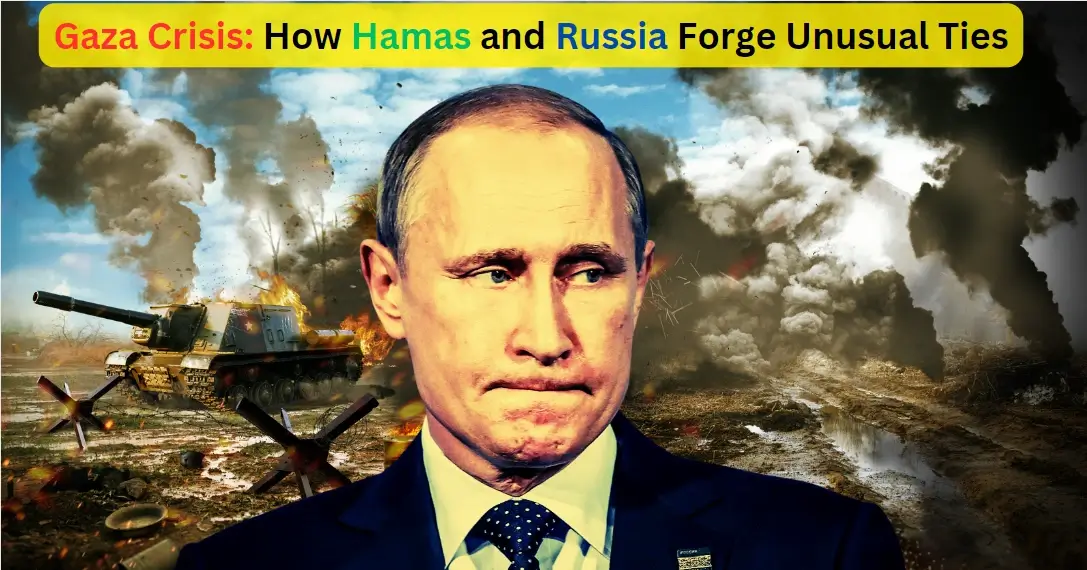Hamas: Russia’s Closest Ally in Gaza Crisis”
In the midst of efforts to secure the release of hostages in Gaza, a Hamas spokesperson has described Russia as “our closest friend.” This statement comes at a crucial juncture, with concerns over potential Israeli ground operations looming large. In this article, we delve into the evolving situation in the Gaza Strip and the role of Russia in the crisis.
Russia: A Key Player
Hamas has recently received a list of dual Russian citizens who may be among the hostages held in Gaza. Mousa Abu Marzouk, a senior Hamas member, disclosed this information to the Russian state-backed RIA Novosti news agency. The Palestinian militant group is actively seeking the whereabouts of eight Russian hostages and is ready to facilitate their release.
A Strong Bond with Russia
Marzouk highlighted the significance of the list received from Russia, emphasizing, “We are very attentive to this list and will process it carefully, because we look at Russia as our closest friend.” This strong rapport between Hamas and Russia is noteworthy, given the current crisis in the region.
International Response
In a recent meeting in Moscow, Hamas representatives pledged their commitment to “respond, assist, find them and take all measures to free the Russians.” Deputy Russian Foreign Minister Mikhail Bogdanov echoed these sentiments, emphasizing Russia’s dedication to resolving the hostage situation.
Russia’s Focus
The Russian Embassy in Israel pointed out that “Russia’s contacts and actions in the Middle East and in international organizations are focused primarily on the immediate release of hostages held in the Gaza Strip, as well as resolving issues related to ensuring the evacuation of Russian and other foreign citizens from its territory.”
Ongoing Crisis
More than three weeks have passed since Hamas initiated a series of coordinated attacks on Israel. Over 200 hostages brought into Gaza remain in captivity, with the exact number estimated to be around 229 or 230. While Hamas has claimed casualties among Israeli hostages, these reports are yet to be independently verified.
Israeli Response
In response to the crisis, Israel has conducted numerous airstrikes on Gaza, signaling the possibility of a ground invasion. Israeli Prime Minister Benjamin Netanyahu affirmed their commitment to bringing back the kidnapped citizens and vowed to “destroy the enemy above ground and below ground.”
Expanding Operations
Israeli ground forces have initiated incursions into northern Gaza, concurrently with ongoing airstrikes. The IDF Chief of Staff, Herzi Halevi, emphasized the necessity of a ground operation to achieve their objectives.
Tensions Escalate
Tensions continue to escalate, with Hamas fighters targeting Israeli tanks in northwest Gaza. The situation remains dynamic and closely monitored by relevant authorities.
Concerns for Hostages
The Hostages and Missing Families Forum, advocating for the hostages’ release, expressed their concerns over the expanding Israeli operations in northern Gaza. The families of those held in captivity are gripped by uncertainty about their loved ones’ fates.
Humanitarian Toll
The toll on both sides is significant, with over 1,400 casualties in Israel and more than 8,000 in Gaza, according to respective sources. The situation remains a matter of grave concern, with efforts to secure the hostages’ release ongoing.
In conclusion, the evolving crisis in Gaza and the role of Russia in facilitating the release of hostages are central to this developing story. The strong bond between Hamas and Russia underscores the complexities of the situation, while international efforts continue to strive for a resolution.



